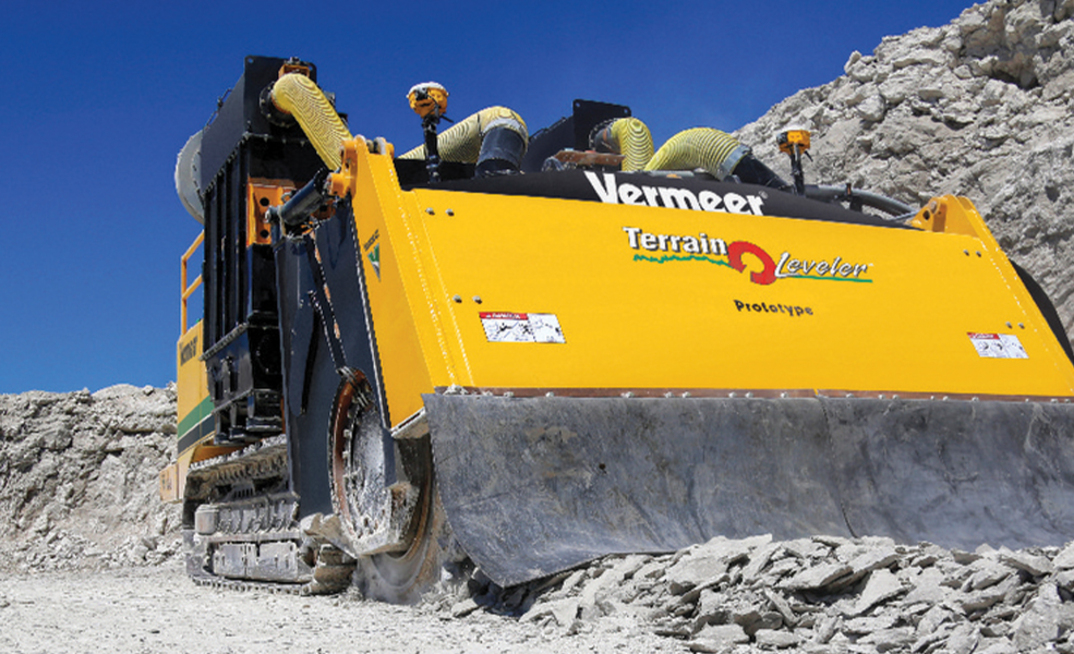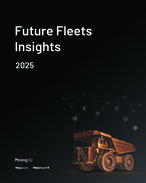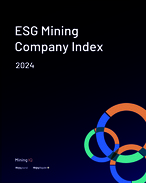The mining industry is changing and growing more competitive every day. Miners are looking for alternative ways to get the job done effectively and efficiently. Vermeer Terrain Leveler surface excavation machines (SEMs) take a whole different approach to mining and can help mine operators achieve new levels of efficiency and productivity and shrink the industry's environmental footprint.
Relatively new to the industry compared to drill and blast and ripping, machines like the Vermeer T1255 Terrain Leveler® SEM turn a normally vertical process horizontal. They complement or replace the vertical process of drilling and blasting, by moving along the ground's surface and crushing horizontal layers of rock, yielding material that can then sometimes bypass a primary crusher, in some cases eliminating a step in the rock mining process. Though Terrain Levelers, also called surface miners, don't always replace the primary crusher's function, they do help streamline operations that typically are paced by the crusher's volume capabilities.
"On a mine site where a primary crusher is used and the main method is drilling and blasting, oftentimes the capacity of that mine is determined by capacity of the primary crusher," said Vermeer Specialty Excavation application engineer Tyler Sikora. "If they need more capacity than the primary crusher, one option is to get an additional crusher. Another way is to add surface miners, which may produce product that can bypass the primary crusher, depending on how the operation is set up."
CONSISTENCY
Beyond being able to replace the efficiency of one or more machines on a jobsite, a surface miner yields a consistently sized end product. Since rock formations typically run horizontally in the ground, the ability to glean veins of material without blending the adjacent materials leads to a higher-value end product.
"This machine cuts the rock and leaves it right where it was within the cut. You are able to just extract the high-grade product without having to blend it," Sikora said. "At a limestone mine, if you encounter a clay seam in the rock, you have the ability load the clay seam to waste without blending it in and having to send it through the plant. Being able to extract higher-value material can be a lot of money savings, and you don't have to process all that waste. You can take the low grade or waste product straight to a waste pile."
Output consistency also contributes to the cost savings of operating a surface miner at a mine. Drilling and blasting often yields inconsistently sized rocks that must be crushed or broken down with a hammer on an excavator simply to attain the necessary level of output consistency. A surface miner eliminates this step in the process when there's high variability in material output.
"We have some control over the size of the rock we produce depending on how the formation is laid in the ground or weathered, but in general we can produce a pretty consistent product," Sikora said. "Sometimes at drill-and-blast or ripping sites, you will have rocks the size of cars all the way down to powder. We're going to yield a product that's generally a lot more useful and easier to handle."
NEW MINING OPPORTUNITIES
Contributing to the cost-efficiency of a mining operation, a surface miner's small and maneuverable footprint and generally limited disruption typically allow it to mine in areas that were off limits to other mining methods.
This is especially valuable in areas with rising populations, according to Sikora.
"Surface excavation has been looked at heavily in terms of the benefits it provides by cutting down on vibration, dust and flying rock, especially when working around increasing populations and infrastructure. There are rules and guidelines depending on where you are working about how close you can work to things like highways, pipelines, rivers and power lines," he said. "Having the ability to work closer to those things offers some additional revenue streams."
Surface miners are safer than conventional drill-and-blast operations by simply eliminating the need to handle sometimes dangerous explosives on jobsites. Drill-and-blast methods also require a lot of specific experience and understanding of things like rock formations in order to both mine the highest-value materials and do so safely.
SAFETY
"The handling and storage of having explosives on-site is getting to be problematic in some areas of the world. And, blasting is a real art. You have to know how to drill in certain patterns and load explosives in the right ways to do a good job," Sikora said. "Some just don't want to deal with the risk of explosives anymore."
As a relatively new way to do a job that's been done other more traditional ways in the past, surface miners do face headwinds to widespread adoption. Oftentimes, that adoption depends on showing the features and benefits of the machines and how they can change how rock is mined.
"Drilling and blasting is kind of the old-school way of doing it, and sometimes people don't want to change. Others want to see what other value streams they can tap into, and we can show our machines can open up new possibilities," Sikora said.
Learn about the full Vermeer lineup of surface miners or contact your local dealer
ABOUT THIS COMPANY
Vermeer Corporation Company
Vermeer makes an impact on the way work gets done. We know customers rely on Vermeer to keep their businesses moving forward and we are committed to meeting customers' needs.
HEAD OFFICE:
- 1210 E Vermeer Rd, Pella, IA 50219, United States
- Web: vermeer.com


























